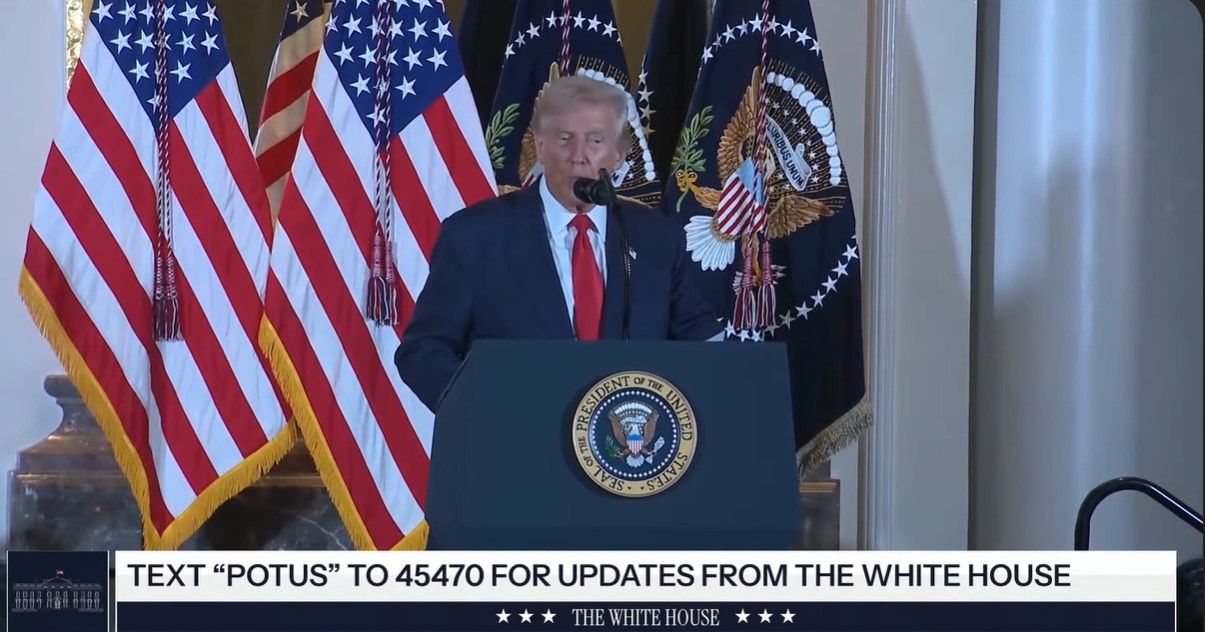Editor's note by Celebrity Media: At a gala dinner in Tokyo that brought together leading business figures from the United States and Japan, President Donald J. Trump delivered a speech praising the new heights achieved by the U.S.–Japan alliance, stating, “This room is really packed... in many ways, this is a celebration of the alliance between the United States and Japan and its strength.”
Trump noted that those present were “an important part of the more than eight trillion dollars in soaring market value,” emphasizing that gathered around these tables were the most powerful economic forces of both countries—“and that includes your company’s interests.”
He reflected on his experience running for office and serving the American people, saying, “It was the honor of a lifetime to serve (as President) and to serve the American people.” He was then introduced to the stage with great ceremony by the host.

Trump’s remarks were both friendly and direct. He said:
- “You’re making a lot of money right now… today hit a historic high, it really did. You’re making a lot of money.”
- “This room is filled with extremely successful and outstanding businesspeople—far above the ordinary.”
- He humorously added, “If anyone hasn’t heard, I’d be surprised,” referring to his upcoming meeting with the President of China.
- He emphasized, “Our border is now completely closed... We’ve taken in 25 people—millions of people. Many of them shouldn’t have been there.”
- He remarked that he “doesn’t like” wars, but candidly said, “I think this trip… coming here was easier than going to the Middle East.”
- When discussing energy and technology, Trump said the U.S. had authorized private companies to build large-scale power plants to meet the massive electricity demands of the AI and semiconductor industries. “You have your own power, you can build it—build it. The faster you go, the better,” he said.
- He revealed that under “today’s new trade agreements and private sector deals with Japan,” Japan would invest $550 billion in the U.S., “creating great wealth and security for both sides.”
- He specifically mentioned Japan’s involvement in the U.S. market—purchasing American trucks, corn, semiconductors, and shipbuilding services—and noted that cooperation in “building ships” is accelerating.
- On environmental and regulatory reform, he emphasized, “We once had a dead country... now it’s the hottest country in the world.” He said the U.S. is “returning to its status as a manufacturing power.”
- He also joked in a casual tone, “If anyone in this room hasn’t done anything yet, raise your hand—we’ll throw you out.”
- Finally, he expressed confidence in Japan’s market, in everyone present, and in the future of U.S.–Japan relations: “I am more confident than ever that the friendship between the U.S. and Japan is strong, prosperous, and will be greater than ever before.”
This dinner was not only a business gathering but also a stage highlighting the Trump administration’s “investment–trade–security” triad strategy. According to media reports, Japan committed to a strategic investment of up to $550 billion in the U.S., covering sectors such as energy, semiconductors, rare earths, and shipbuilding. In his speech, Trump repeatedly linked investment, trade, and manufacturing revival with the U.S.–Japan alliance, conveying that their cooperation goes beyond diplomacy and security—it is deeply rooted in shared economic interests and supply chain restructuring.
The event also reflected Trump’s pro-business, fast-approval, and deregulation-oriented governance philosophy. He stressed that private companies could “start work immediately” without “years of approval,” calling this a key competitive advantage of the U.S. In addition, he presented border security, withdrawal from foreign wars, support for domestic manufacturing, and a return to energy independence as essential components of his economic message.
From his remarks, it was clear that Trump envisions the next stage of U.S.–Japan cooperation entering an “accelerated track”: large-scale Japanese capital flowing into the U.S., boosting American manufacturing and technology industries, and jointly developing key sectors like shipbuilding, semiconductors, and rare earths. This move could have major implications for U.S. economic growth, Japan’s exports, and global industrial distribution. At the same time, Trump’s candid references to future global conflicts—especially the Russia–Ukraine situation and border issues—underscored his view that “national security, trade, manufacturing, and investment” are interconnected rather than separate issues.




